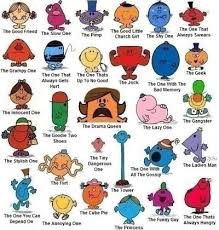 Last week a dear non-profit friend of mine from California couldn’t sleep. She tossed and she turned. Ultimately, she got out of bed, turned on her computer and started talking into a microphone. When I woke up in the morning in my bed in Elgin, Illinois, there was an email sitting in my inbox with a voice file attachment. Her words have tumbled around in my head for a week, and I’ve decided to enlist your support in dissecting them.
Last week a dear non-profit friend of mine from California couldn’t sleep. She tossed and she turned. Ultimately, she got out of bed, turned on her computer and started talking into a microphone. When I woke up in the morning in my bed in Elgin, Illinois, there was an email sitting in my inbox with a voice file attachment. Her words have tumbled around in my head for a week, and I’ve decided to enlist your support in dissecting them.
The gist of her recording pertained to non-profit boards. Here is a synopsis of what she said:
- There are too many non-profit boards that just don’t work.
- Too many board members either don’t understand their roles/responsibilities or turn a blind eye to certain roles that make them feel uncomfortable (e.g fundraising and resource acquisition).
- Are there occupations that are better suited for non-profit board leadership (e.g. finance people compared to artists)?
- Should non-profit agencies incorporate personality testing into their board development process because certain personalities are better suited to serving on a non-profit board?
After a week of contemplative thought, I honestly don’t know how I feel about anything she said. I am looking forward to you weighing in with your thoughts using the comment box at the bottom of this blog.
Here is what I have concluded:
- Boardroom diversity is important. We don’t need all of the same types of people sitting around a table in a simulated echo chamber. (I am not implying that was what she was saying, but I do worry that it could be an unintended consequence.)
- Understanding roles/responsibilities and executing them are vital to non-profit health. The non-profit sector needs to get better at recruitment, management and evaluation or suffer the consequences.
- The characteristics and traits of an effective non-profit executive director (aka CEO) are changing with the times, and hiring the right person might make all the difference in the world when it comes to board development, board governance and team cohesiveness from the front line to the boardroom.
 After listening to my friend’s recording, I started Googling around and searching for anything that anyone might have written about characteristics and traits of effective boards. I was especially intrigued by her question about incorporating personality testing into the board development process. After all, many workplaces are incorporating this type of assessment into their employee hiring process.
After listening to my friend’s recording, I started Googling around and searching for anything that anyone might have written about characteristics and traits of effective boards. I was especially intrigued by her question about incorporating personality testing into the board development process. After all, many workplaces are incorporating this type of assessment into their employee hiring process.
I didn’t really find much of anything that resonated, but there was some interesting stuff on Myers-Briggs personality testing that pertained to the non-profit sector. Here are some of the better links:
- Nonprofit People blog: “An Introduction to Myers-Briggs“
- Brad Rourke’s blog: “Myers-Briggs in the Nonprofit Workplace: How to Lead with J’s and P’s“
- Nonprofit Resource Network: Resources Page
While I suspect you may find these links interesting, they still didn’t help me process what my sleepy California friend had ignited in my head. And then I came across an online post at Ivey Business Journal titled “Profiling the Non-Profit Leader of Tomorrow“.
This article focused on the executive director as the linchpin to what my friend had identified. They identified 15 “must-have” attributes that a non-profit leader must possess in order to be successful. Those attributes are as follows:
 Competencies
Competencies
- Strategic thinker
- Relationship builder
- Collaborative decision-maker
- Entrepreneurial achiever
- Effective communicator
- Change leader
- Inspiring motivator
Personality Traits
- High integrity
- Adaptable/Agile
- Perseverant/Patient
- Interpersonal sensitivity
- Passionate about the mission
Knowledge/Expertise
- Financial acumen
- Deep sector-specific knowledge
- Understanding & valuing diversity
I suspect a number of these competencies and skill sets also can be applied to your board development process.
If I’ve piqued your curiosity — and I suspect that I have — then I encourage you to click-through to the Ivey Business Journal article and keep reading. Enjoy!
Take a good hard look in the mirror this morning. How many of these attributes do you possess? How do you know you possess them? Do you conduct 360 assessments asking for your employees’ feedback? If so, what do they say about you and these attributes? Does your board development process look for volunteers with these attributes? If so, what tools do you use to help identify these attributes?
In addition to sharing your thoughts about these questions in the comment box below, I welcome your thoughts about the question I asked earlier in this post about my friend’s online recording.
We can all learn from each other. Please take a minute out of your busy day to share with your fellow non-profit friends.
Here’s to your health!
Erik Anderson
Founder & President, The Healthy Non-Profit LLC
www.thehealthynonprofit.com
erik@thehealthynonprofit.com
http://twitter.com/#!/eanderson847
http://www.facebook.com/eanderson847
http://www.linkedin.com/in/erikanderson847
